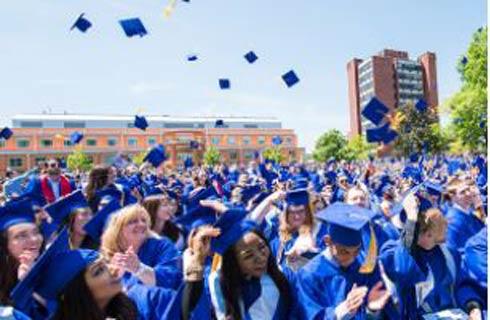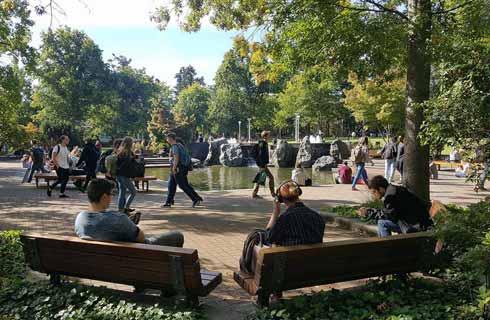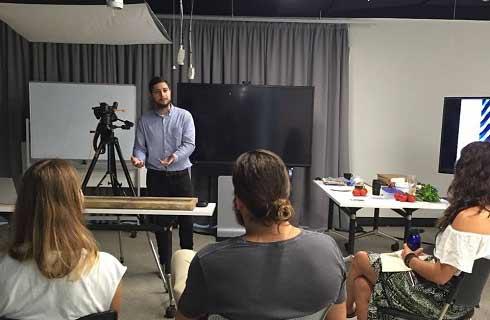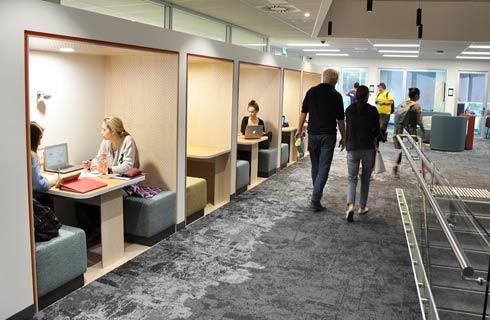国际学生入学条件
Applicants will normally be required to hold an honours degree, usually in music. Other clinically related disciplines such as psychology, teaching, nursing, or social work, and graduate level professional qualifications in appropriate disciplines such as the performing arts, Occupational Therapy and Social Work are also considered where music skills are demonstrably sufficient. Applicants need to evidence that they can meet the academic demands of a Masters degree and will be required to prepare and submit a written personal statement to support their application. You need an International English Language Testing System (IELTS) score of at least 7 with no element below 6.5 for applicants for whom English is not their first language. TOEFL IBT 89 overall with a minimum of 17 in Listening and Writing, 18 in Reading and 20 in Speaking.
展开
IDP—雅思考试联合主办方

雅思考试总分
6.5
了解更多
雅思考试指南
- 雅思总分:6.5
- 托福网考总分:89
- 托福笔试总分:160
- 其他语言考试:Cambridge Proficiency Certificate - 176 overall with a minimum 162 in each component (some schools require a minimum of 169 in each)
CRICOS代码:
申请截止日期: 请与IDP顾问联系以获取详细信息。
课程简介
This programme provides a contemporary psychodynamic music therapy training.<br><br>The programme delivers learning and teaching that equips students with a contemporary framework for practice in music therapy and the ability to gain employment and practice in all health and care settings.<br><br>Along with profession specific learning and teaching there is engagement in interprofessional learning across the Arts and Play Therapies programmes.<br><br>The curriculum uses central historical psychoanalytic concepts viewed through the lens of contemporary practice to provide a flexible and up to date framework for music therapy practice. A driving principle of interrogation of power and equality is embedded throughout the training and influences learning and teaching about theory, clinical skills and placement work. This approach supports students in understanding the centrality of the service user experience within all their work.<br><br>A unique aspect of the training programme is the shared teaching with other Arts and Play Therapies programmes which not only provides a rich learning environment but gives students critical perspectives and experience of interdisciplinary approaches.<br><br>The course encompasses theoretical, practical and experiential learning. With our holistic approach to teaching, you will be provided with thorough and systematic knowledge, experience, skills and the confidence to work as a professionally qualified Music Therapist.<br><br>The programme delivers the learning and teaching needed for students to demonstrate a comprehensive understanding and delivery of the therapeutic techniques and approaches required for professional registration purposes.<br><br>You will be taught by leading experts with years of teaching experience who will equip you with the skills, experience, and confidence to work as a Music Therapist in challenging, yet rewarding environments. Lecturers use a diverse range of learning and teaching approaches and assignment methods including lecture seminars, discussion groups, reflective practice groups, and experiential, music skills based and problem based learning.<br><br>The approach taught gives students a solid grounding in principles for safe and effective music therapy practice, alongside an ability to adapt, lead and innovate as required by the service users and settings within which they work. The training pathway follows a logical sequence that allows students to gain the skills and abilities that they need to integrate theory and practice, demonstrate clinical skills, develop innovation and evaluation skills and graduate with a high level of employability. In addition students are assisted in understanding and developing their own self-care in order to maintain an ethical, sustainable professional practice.<br><br>Work based placement learning and experiential learning is central to this training, particularly in the development of clinical (musical) and reflective therapeutic skills. Clinical placements are a central aspect of the training, embedded in the curriculum. All students complete 2 placements, supervised by Placement Educators who are Music Therapists in the placement setting, and supported at University by Reflective Practice Groups and lectureseminars which provide additional learning opportunities.
展开







 预科
预科 奖学金
奖学金 实习机会
实习机会 在校学习
在校学习 跨境学习
跨境学习 校园授课-线上开始
校园授课-线上开始 在线/远程学习
在线/远程学习















 爱丁堡龙比亚大学
爱丁堡龙比亚大学

 埃塞克斯大学
埃塞克斯大学



 赫尔大学
赫尔大学

 赫特福德大学
赫特福德大学

























